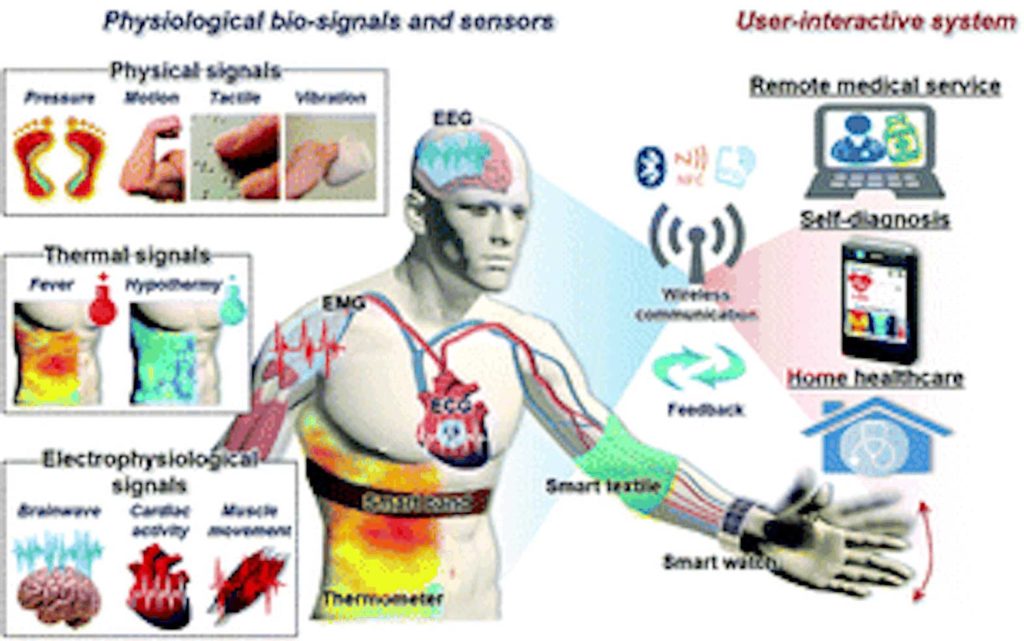Self-tracking health data with ‘wearables’- a brave new world

McDonald’s dumpsters in Las Vegas are currently installed with cameras and sensors to get better at determining what’s inside, reported R. Crane of CNN Business. So far, it has processed over 80 million images from the 162,000 cameras according to Compology.
Compology is a recycling company based in San Francisco since 2013 applying artificial intelligence (AI) to monitor what’s thrown into dumpsters to distinguish recyclable materials, like cardboard, from being contaminated by real junk, in order to segregate them as non-waste.
Our current “wearables” come to mind. According to an ad pitched by a wearables company, “Thanks to recent developments in consumer technology, it is now possible to see inside your body and to track vital health signals for yourself, in the comfort of your own home. It’s like taking a free physical exam – at home, whenever you want!”
Moreover, “Scientists are starting to put ‘brain’ in dumb substances…” wrote Begley and Service as early as three decades ago in their piece, Walls with Eyes. The “transition” glasses you wear or the toy animal that “grows’ in water clues us how far we have gone.
Can we truly see inside our body with a wearable, incredulously inquired my heretic-kibitzer friend? Do wearables hold some kind of psychical mystique?
Self-quantification
The human is a mere bevy of numbers, so is everything in life, my bio-physicist kibitzer friend quipped. “Everything you feel is physiologically expressed in the proteome and metabolome” (denoting genome, cell, tissue and molecule interactions within a biological system), asserted Dr. H. Heine, researcher and founder of a bio-tech company in 2012.
Proteome and metabolome, which are observable, constitute us as human. This means that every substance, cell and energy in the body is measurable by instruments, reagents, and software. Thereby, the self is quantifiable, wrote my alter-ego kibitzer friend in, From Know Thyself to Track Thyself almost a decade ago.
“Self-tracking” was first proposed by G. Wolf and K. Kelly, editors of Wired magazines, in 2007. However, it was Dr. L. Smarr, a Nobel laureate, astrophysicist turned computer scientist, who started charting his bodily inputs and outputs in minute detail, revealing the true ecology of the quantified self.
Dr. Smarr, a decade ago started collecting information on everything—from how well he sleeps to the state of his poop. Dr. Smarr appeared to have concretized the dictum, “track thyself” by the methodology he initiated.
Self-quantifying is the ‘self-tracking’ of our own behaviors, physiology, genome, down into molecular activities. The primary goal: to search for harbingers of our current or future health conditions. Self-tracking devices became practical, inexpensive, and ubiquitous. Currently we call these wearables.
Behind
Today, we not only understand why and how organs functions, but also how and why molecules make these possible. All these we can record as data — all of which we can derive from self-quantifying instrumentation and/or with recorded medical information. All these “data” are processed with the aid of algorithms and AI technology.
Every wearable gadget basically “detects” physiologic activities of our autonomic nervous system (among others). This is “recorded” then converted into “‘data” we can collectively call “biofeedback.” Biofeedback was coined by N. Wiener who pioneered researches during the 1970s when “algorithm” was not yet a buzzword.
Algorithm is simply an instructional schema(s) protocol for a specific task. “Algorithm is the soul of computer,” declared in an article in the National Geography, Partner Content section in 2019; if so, artificial intelligence is its consciousness, explained my biophysicist kibitzer friend.
Upon “analyses” of data, the algorithm processes then presents “options” or best solutions or interventions ranging from elevated blood sugar and injecting the right dosage of medication, to alerting the specific provider. All recorded, synchronized and orchestrated of what is happening inside the body — all in real time.
Ninety four percent of US hospitals can now access and analyze electronic health records (EHR) of millions of patients for almost everything from blood pressure, nutrition, to effectiveness of specific treatments modality to the spread of infectious diseases, so we are told.
Because of the omnipresent computer software, every collected data or “feedback” are retrievable wirelessly, 24/7, anywhere and everywhere for interpretation, manipulation, or diagnosis. A wearable is akin to wedding ring worn by anyone married to medical issues, quipped my satirist kibitzer friend.
Tool
Biofeedback machine, the precursor of the wearable was intended as a training tool to “subdue” our physiological responses in order to “consciously train” the mind to transform these responses and achieve a certain level of “behavioral modification.”
Knowing what is inside of us is crucial. The early detection of any anomaly in the body is always a salient crux for a timely diagnosis for treatment. The technology embedded into our wearables appears to be really speeding things up.
Perhaps when these truly become infallible, the precise drug will treat the precise virus strain identified by and through the precise apparatus. Medical conjuring will become no more, quipped my alter-ego kibitzer friend.
Is the Covid vaccine with 95% efficacy, which was created in nine months, proof enough? I wonder who would win in building the first kinder Earth Elysium? HAPPY HOLIDAYS.
Dr. Aggie Carson-Arenas is a Certified Clinical Psychology Specialist, a former associate professor and university research director. He is a Behavior Analyst Specialist in Nevada, an educator, clinician, researcher, consultant, columnist and a published author. Dr. Carson-Arenas together with his daughter Abbygale Williamson Arenas-de Leon authored, “You’re Okay, I Am Perfect (How teens and adolescents & those in between quest for identity).” Abbygale also authored “88 Things Every Professional Should Know… or Else.”

